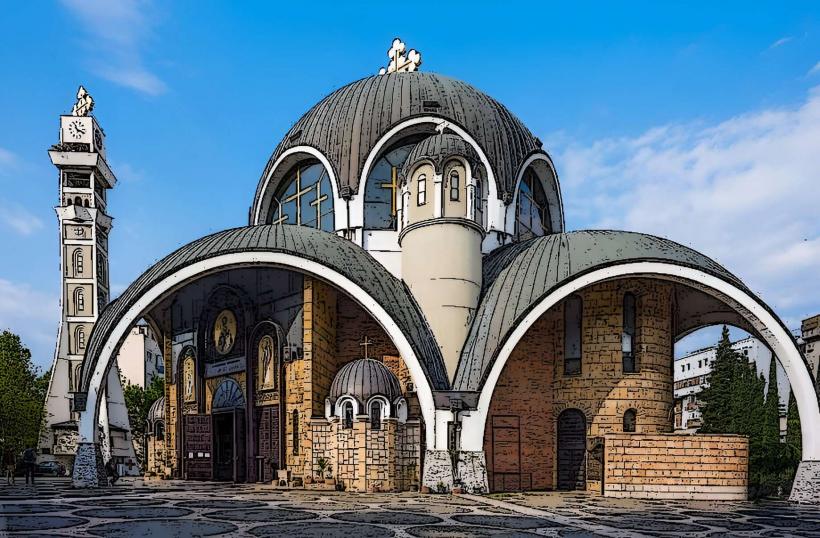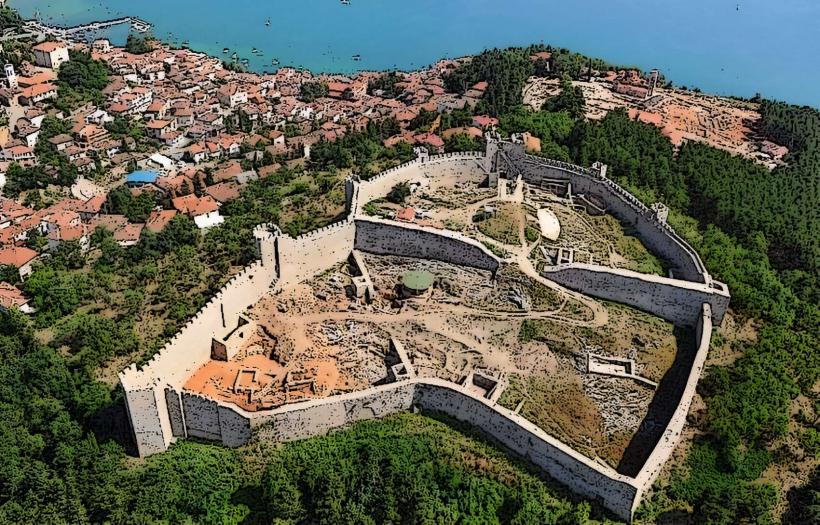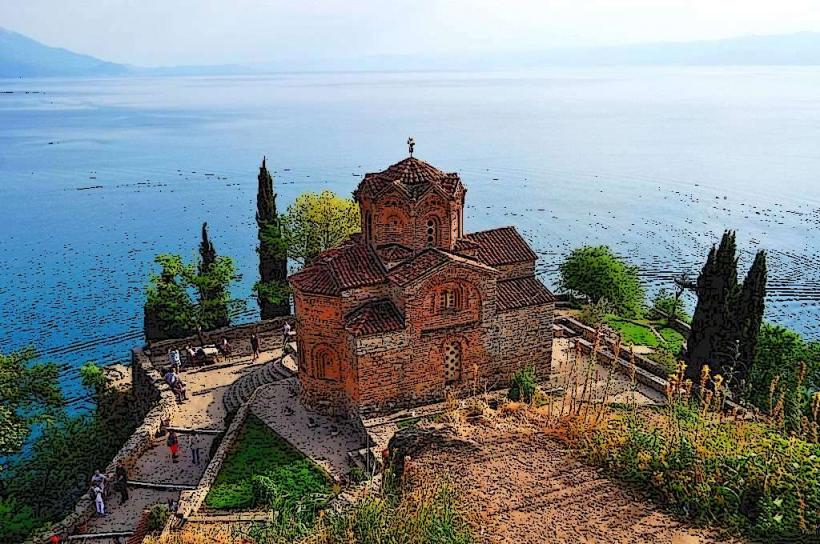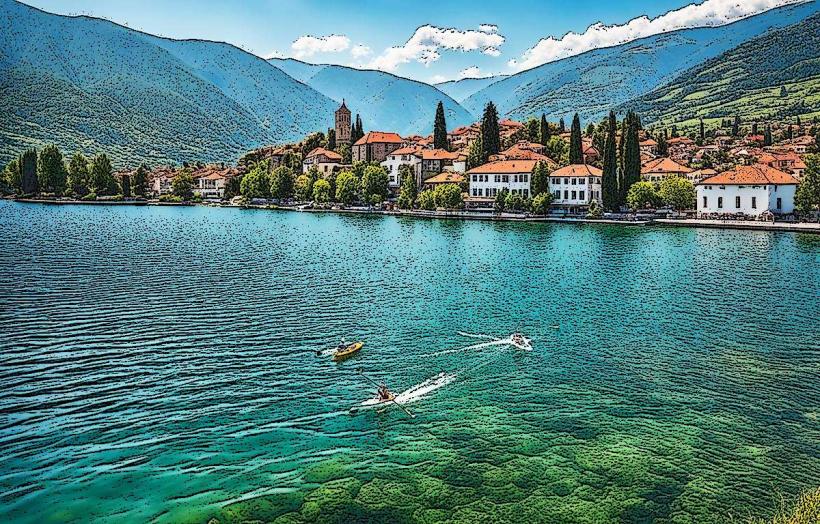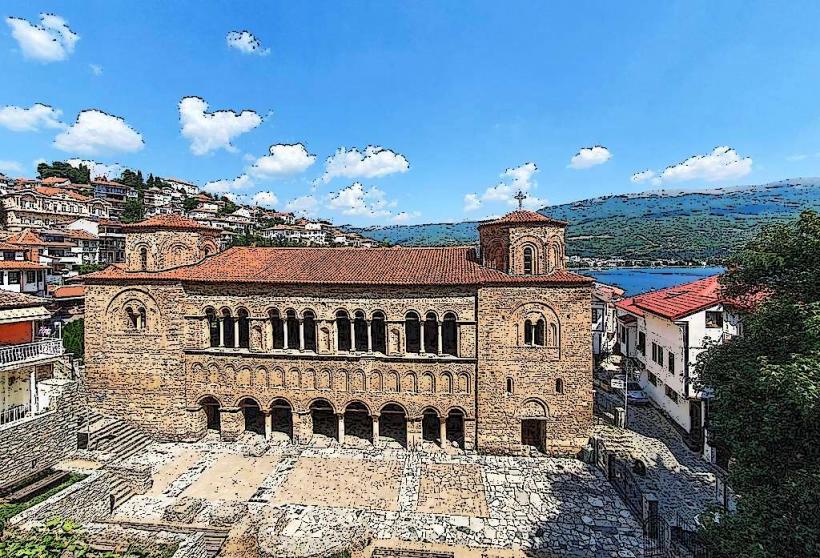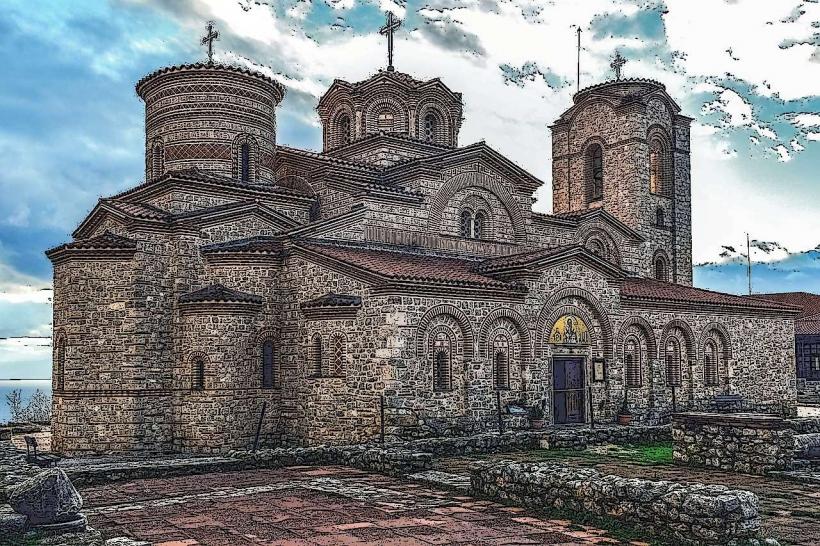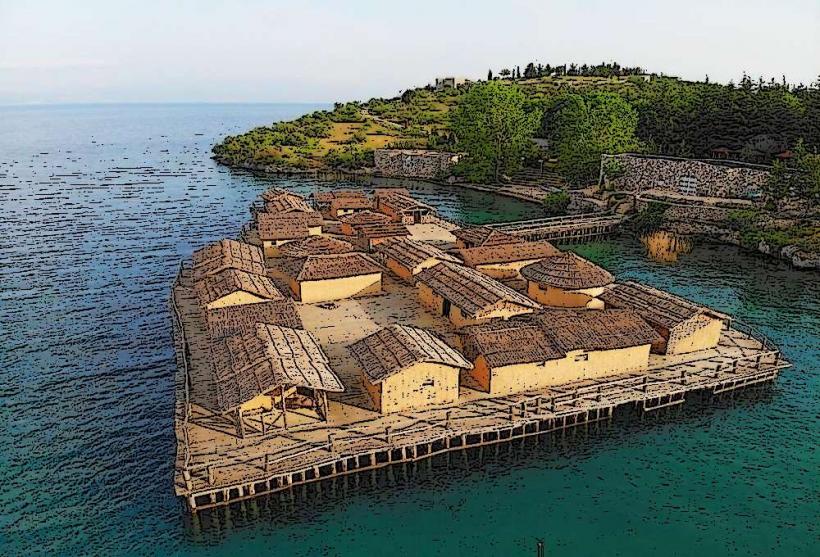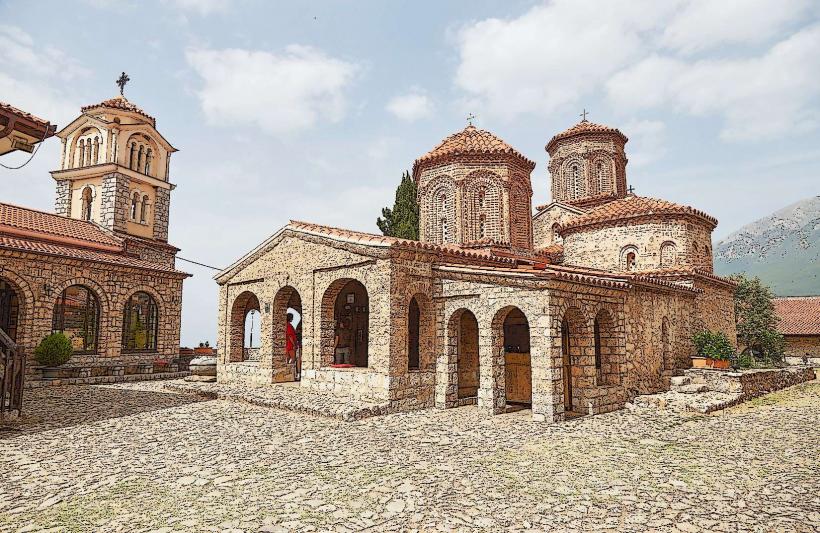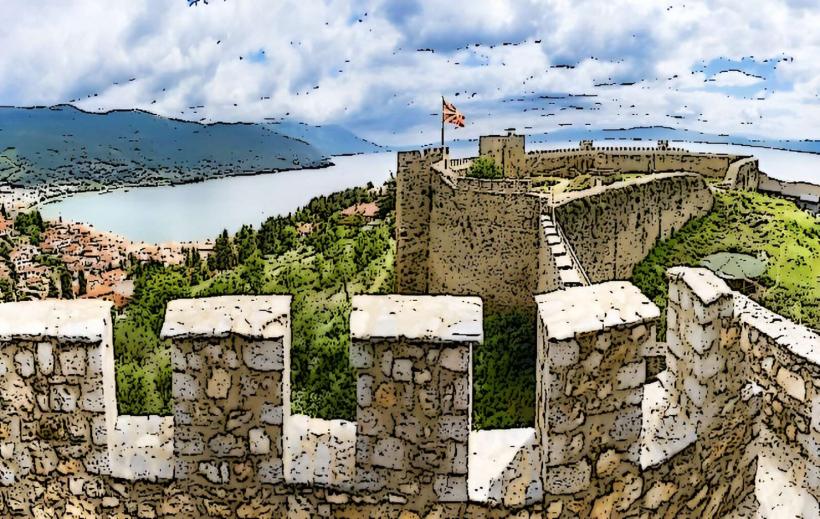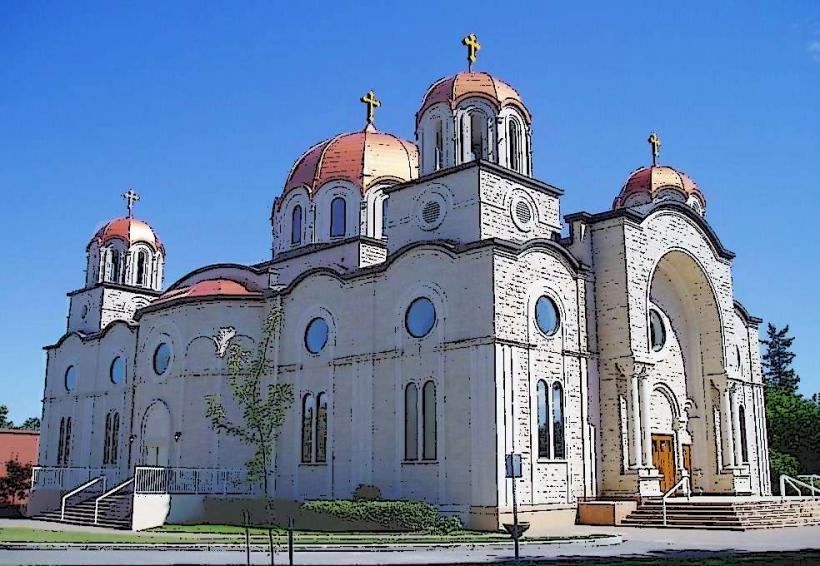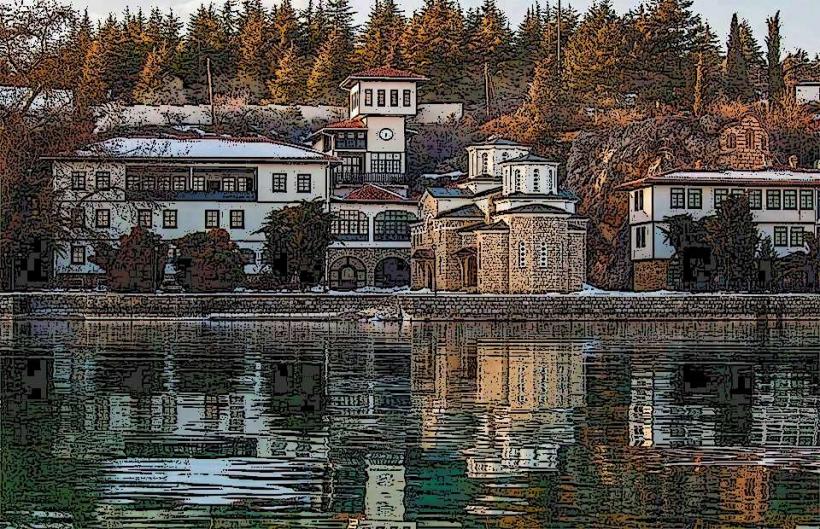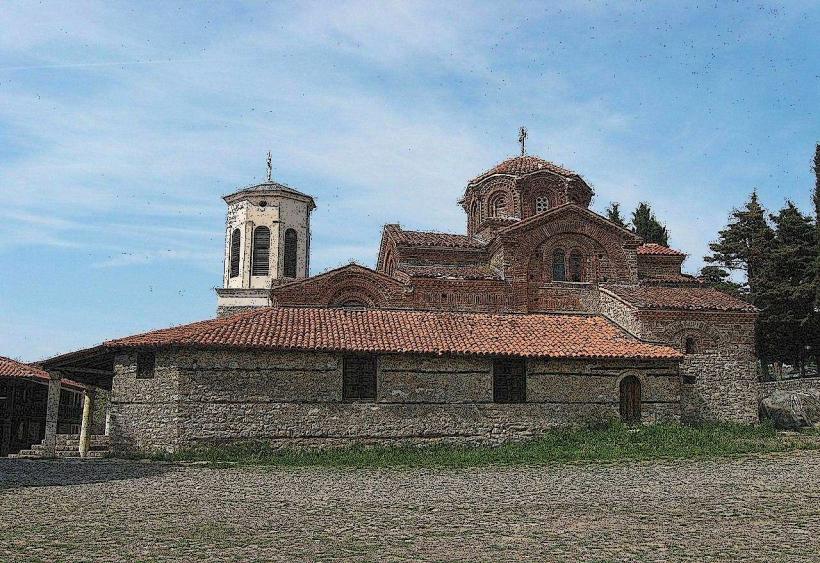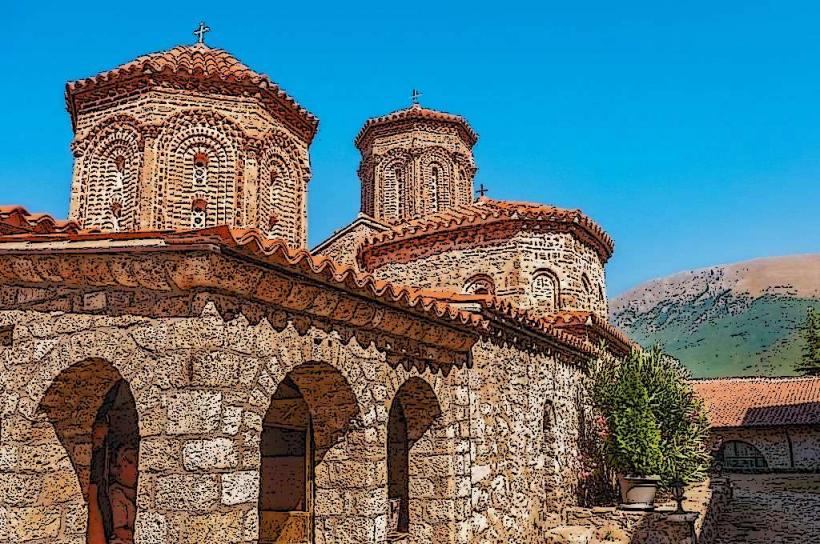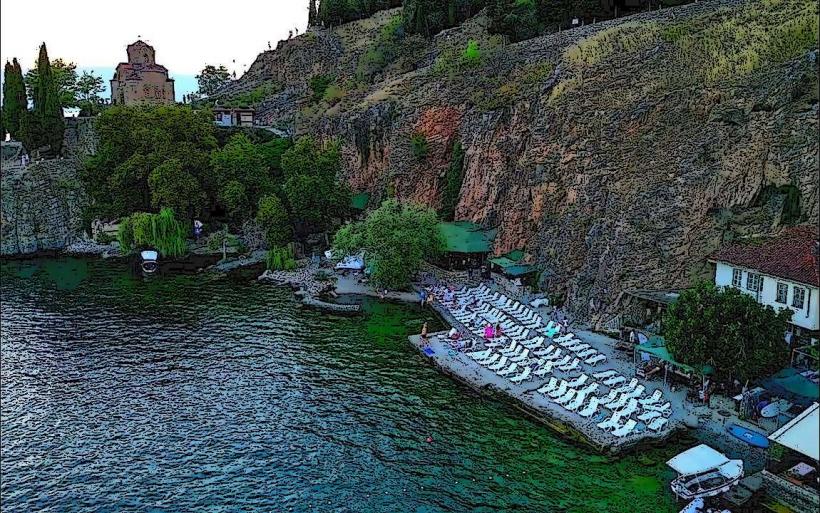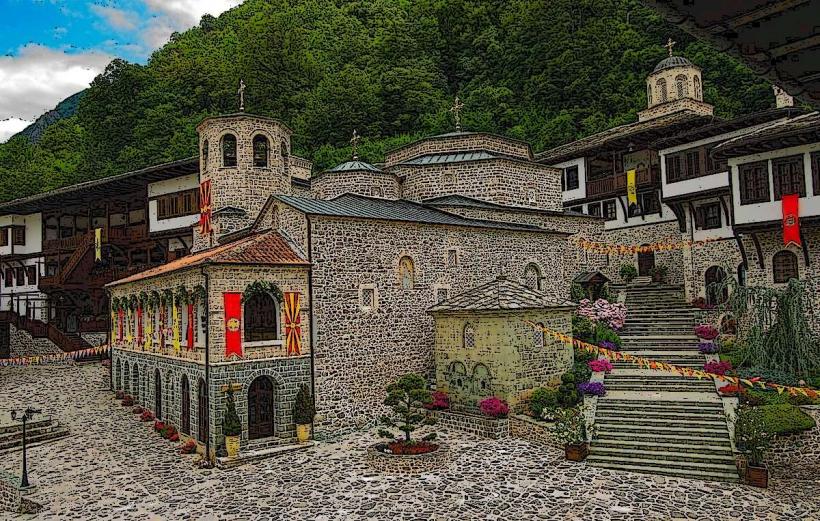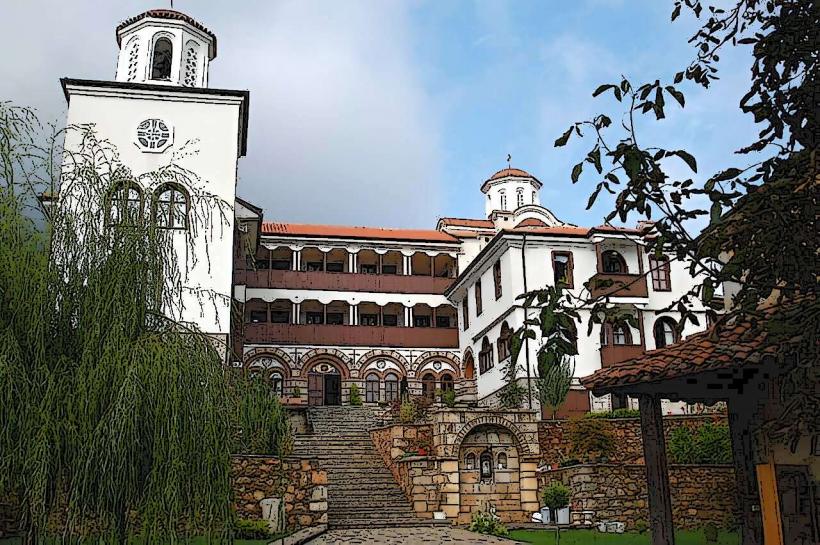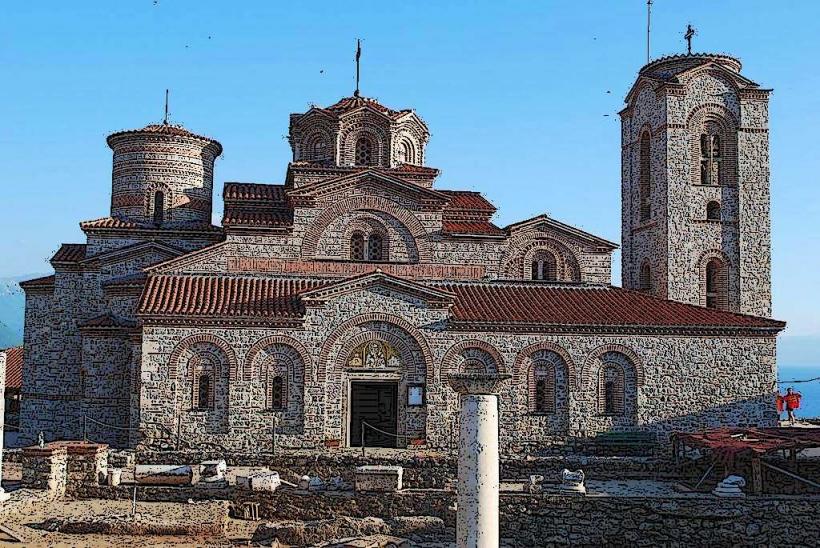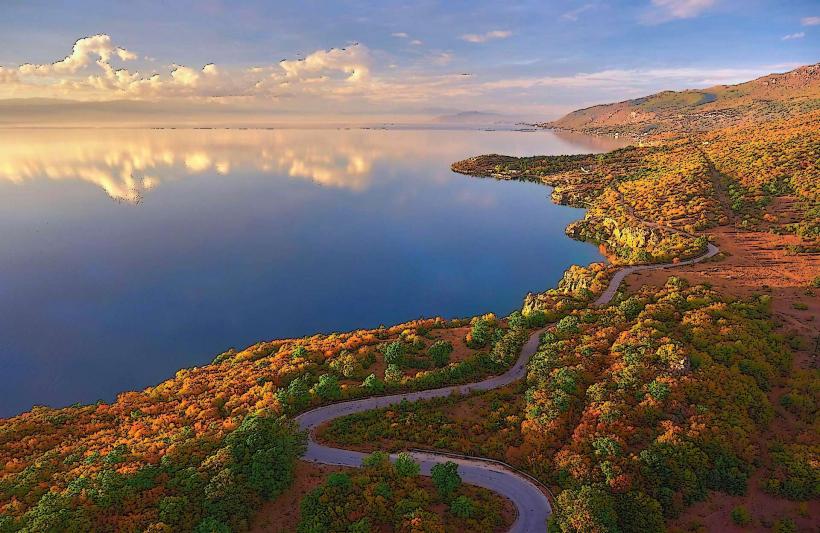Information
Landmark: Holy Virgin MonasteryCity: Ohrid
Country: North Macedonia
Continent: Europe
Holy Virgin Monastery, Ohrid, North Macedonia, Europe
The Holy Virgin Monastery (often referred to as the Monastery of the Holy Virgin) is a significant Orthodox Christian monastery located near Ohrid, North Macedonia. The monastery is dedicated to the Virgin Mary and is part of the rich spiritual and cultural heritage of the Ohrid region, which is renowned for its many historic monasteries, churches, and religious sites.
Overview:
- Location: The Holy Virgin Monastery is located in the vicinity of Ohrid, usually near the town of Trpejca, which is situated along the southern shores of Lake Ohrid. The area is known for its natural beauty, with picturesque views of the lake and the surrounding hills, making it a peaceful destination for visitors and pilgrims alike.
- Dedication: The monastery is dedicated to the Holy Virgin Mary, one of the central figures of Orthodox Christianity. The title "Holy Virgin" emphasizes her role as the mother of Jesus Christ and a symbol of purity and compassion in Christian faith.
History:
- Founding: The Holy Virgin Monastery is believed to have been established during the Byzantine period, though the exact date of its founding is not precisely known. It is thought to date back to at least the 11th or 12th century, making it a medieval Orthodox monastery with a rich history.
- Byzantine Influence: Like many monasteries in the Ohrid region, the Holy Virgin Monastery is deeply influenced by the Byzantine Empire, both in terms of its architectural style and religious practices. Ohrid itself was an important center of Christianity and Byzantine culture during this period, with many churches and monasteries built in the region.
- Renovations and Changes: Over the centuries, the Holy Virgin Monastery has undergone several renovations and restorations. Many monasteries in the region faced challenges during the Ottoman period, when Orthodox Christian sites were often repurposed, abandoned, or subjected to neglect. However, the monastery was restored in modern times and continues to serve as an active place of worship and pilgrimage.
Architecture:
- Byzantine-Style Architecture: The Holy Virgin Monastery is built in the Byzantine architectural style, which is characterized by the use of stone and brick, domes, and cross-in-square designs. The church features traditional Byzantine elements, such as a central dome, arched windows, and a narthex (entrance hall).
- Iconostasis: Inside the church, the iconostasis (a screen decorated with religious icons) separates the altar area from the main worship space. The iconostasis is typically adorned with icons of Christ, the Virgin Mary, and various saints, following the traditional Orthodox Christian practice.
- Interior Decorations: The interior of the church is often richly decorated with frescoes, which are a hallmark of Byzantine and medieval Orthodox churches. These frescoes depict biblical scenes, the lives of saints, and important religious themes, such as the life of Christ, the Virgin Mary, and the Resurrection.
Religious Significance:
- Active Place of Worship: The Holy Virgin Monastery is an active Orthodox Christian monastery, and it continues to serve as a place of regular liturgical services, prayers, and religious observances. It is a spiritual center for the local Orthodox community and a site for pilgrimages.
- Feasts and Celebrations: Like many monasteries dedicated to the Virgin Mary, the Holy Virgin Monastery holds special celebrations on major feast days dedicated to the Virgin Mary, such as the Feast of the Assumption of the Virgin Mary (August 15). During these times, the monastery may host special services and prayers, attracting pilgrims from the region and beyond.
- Pilgrimage: The monastery is a destination for pilgrims who come to pay homage to the Holy Virgin and seek spiritual guidance. Orthodox Christian traditions hold the Virgin Mary in high esteem, and visiting monasteries dedicated to her is an important practice for many believers.
Frescoes and Religious Art:
- Frescoes: One of the most important aspects of the Holy Virgin Monastery is its frescoes, which are an excellent example of Byzantine and medieval religious art. These frescoes cover the interior walls and depict important events from the Bible and the lives of saints. Some frescoes may include scenes from the life of Christ, such as the Nativity, the Crucifixion, and the Resurrection, along with scenes showing the Virgin Mary and other saints.
- Iconography: The monastery also features an iconostasis and individual icons that are used in Orthodox Christian worship. These icons often include depictions of Christ, the Virgin Mary, and various saints, and they are highly revered by Orthodox Christians for their spiritual significance.
Natural Setting:
- The Holy Virgin Monastery is situated in a tranquil location, surrounded by natural beauty. The lake and mountains create a peaceful environment that is conducive to prayer, reflection, and spiritual contemplation. The setting enhances the spiritual experience for those who visit, as it allows them to connect with nature while deepening their faith.
- Trpejca: The nearby village of Trpejca, located on the shores of Lake Ohrid, is a picturesque area with stunning views of the lake and surrounding mountains. The monastery's proximity to the lake and its natural surroundings makes it a serene and peaceful destination for visitors.
Visitor Experience:
- Religious Services: Visitors to the Holy Virgin Monastery can attend liturgical services and take part in the religious life of the monastery. Services are held regularly, and special events are conducted on major Orthodox feast days dedicated to the Virgin Mary and other saints.
- Tourism: In addition to its religious significance, the monastery is a popular destination for tourists interested in medieval art, Byzantine architecture, and spiritual experiences. Visitors can explore the monastery’s architecture, view the frescoes and icons, and enjoy the peaceful surroundings.
- Hiking and Nature: For those who enjoy nature, the Holy Virgin Monastery offers an excellent opportunity to explore the natural beauty of the region. The surrounding area has several hiking trails, and the monastery’s location on the shores of Lake Ohrid provides an ideal setting for walks and outdoor activities.
Conclusion:
The Holy Virgin Monastery near Ohrid is an important Orthodox Christian site with both spiritual and cultural significance. Its Byzantine architecture, frescoes, and iconography make it an important landmark in the Ohrid region, which is renowned for its rich Christian heritage. As an active monastery, it serves as a place of worship, pilgrimage, and spiritual reflection for both locals and visitors. The serene setting by Lake Ohrid further enhances the spiritual and aesthetic experience, making the monastery a meaningful destination for those seeking to connect with Orthodox Christian traditions, history, and art.

